When Alex Kennedy was 16, his world changed in a way that nothing could have prepared him for. Cathy, his mother, who had been on life support for weeks following a heart attack, died in the hospital. In those moments leading up to her death, Alex felt a profound sense of confusion, numbness, and disbelief—a combination of emotions that left him feeling detached from the world around him.
“Seeing her die was the most useless I have ever felt,” Alex recalls. “There was nothing I could do to save her.”
In the days and weeks that followed, grief took hold in unpredictable ways. Alex withdrew, distancing himself from friends, family, and even his mother in those last moments. It was a coping mechanism born out of the deep pain of loss. Alex would often find himself sitting in the school bathroom, staring at the wall, sobbing, or pulling his hair—unable to reconcile the whirlwind of emotions he was experiencing.
“After she died, I felt the same constant jumble of emotions: dissociation, sadness, disbelief, anger, and an aching in my heart,” Alex shares. “I was angry at my mom, at the world, but mostly at myself, for not being a better child for her, for not telling her I loved her enough.”
That aching, that sense of inadequacy haunted Alex. He struggled with feelings of regret, replaying his last conversation with his mother—one that was not as kind or loving as he now wished it had been. The pain of not visiting her sooner, not holding her hand while she was dying, weighed heavily on him. Grief, for Alex, was all-consuming, and the loneliness of it felt unbearable.
But in the midst of that loneliness, Alex made a decision that would change the course of his grief journey: he sought support. And it was through that decision that Alex found The Children’s Room—a place that would help him reconnect with his mother in ways he never thought possible.
SAYING YES TO SUPPORT
Saying yes to support can be one of the hardest steps in a grief journey. For Alex, it came after realizing that he was grieving in a way that felt different from his family, and that talking about his mom with friends often left him feeling misunderstood. What Alex craved was a space where his grief could be acknowledged without fear of making others uncomfortable—a space where he could talk about his mom and keep her memory alive.
“I wanted to be around other kids my age going through similar experiences,” Alex explains. “I wanted to hear their stories and be reminded that I wasn’t alone.”
TCR became that place for Alex. From the moment he joined the program, he felt supported by both the staff and the other teens who shared their experience of loss. Though he was anxious about meeting new people and opening up about his grief, Alex quickly found that TCR offered a community of understanding—a place where his grief was met with compassion, and his emotions were validated.
MEMORY MAKING AND CONTINUING BONDS
One of the most transformative lessons Alex learned at TCR was the idea of continuing bonds—the notion that, even after death, the relationship with a loved one doesn’t have to end. It can change, evolve, and become something that offers comfort and connection in new ways.
“I am always connected to my mom,” Alex reflects. “I notice it in how I think, certain things I do and say, and in what I love, value, and believe in.”
TCR gave Alex a space to explore these continuing bonds through creative activities that allowed him to honor his mother’s memory. Art projects, collages, and writing exercises became ways for Alex to express his grief and remember the parts of his mother that still lived within him. These activities helped Alex realize that his mother’s presence was still with him—in every wildflower he picked, every meal he cooked, and every sunny spot he admired, just as she had taught him.
At home, Alex and his father, James, created a small table to honor his mother’s memory. Over time, Alex added to the table with vases of flowers, candles, and other mementos. This table became a place of connection—a physical space where Alex could feel closer to his mother, even in her absence.
“TCR gave me a scheduled time and place to remember, talk about, and honor my mom,” Alex says. “It strengthened my connection with her and helped me find peace in those memories.”
DEVELOPING EMOTIONAL AWARENESS AND COPING SKILLS
Grief is a complex and often overwhelming experience. For Alex, the mixed emotions he felt after his mother’s death were hard to express and even harder to cope with. The sadness, anger, and regret swirled together in ways that left him feeling lost and unsure of how to move forward.
TCR provided Alex with the tools he needed to navigate those emotions. Through peer support and the guidance of TCR’s staff, Alex learned how to process his feelings in healthy and constructive ways. He found a safe space where he could express his emotions without fear of judgment and where he was met with empathy and understanding.
“TCR gave me a safe space to express those emotions,” Alex recalls. “I could share these complex feelings with other teens and staff, and there was always someone who could relate or validate what I was going through. It made me feel seen and understood.”
Through the support of TCR, Alex developed emotional awareness and learned coping strategies that helped him manage his grief in healthier ways. It was through this process that Alex began to accept his emotions as part of the grieving journey rather than something to be pushed aside.
THE STRENGTH OF PEER SUPPORT AND CONNECTION
One of the most profound aspects of Alex’s experience at TCR was the connection he found with his peers. Before coming to TCR, Alex often felt isolated in his grief—struggling to feel heard and understood. But at TCR, that isolation began to fade.
“When I spoke, people listened,” Alex says. “The advice I gave was appreciated, and I realized that I had knowledge and experience that could help others. Helping others helped me in a big way.”
Being part of a group where everyone had experienced loss allowed Alex to not only express himself but also to provide support to others. It gave him a sense of purpose, reminding him that he was not alone in his grief. He was part of a community—one that uplifted each other and shared in both the pain and the hope.
On Alex’s last day in Teen Program, his group leaders expressed gratitude for his presence and participation. It was a moment of recognition that left a lasting impact on Alex, as he realized just how far he had come in his grief.
“I was so grateful for their kind words and support,” Alex reflects. “TCR was the only place where I didn’t feel inadequate. It gave me a purpose and made me feel appreciated.”
A PATH OF GROWTH AND HOPE
Alex Kennedy’s grief has been marked by deep pain, profound growth, and the unwavering support of The Children’s Room. Through TCR, Alex found a space to express his emotions, honor his mother’s memory, and build a community that offered connection and understanding.
“TCR gave me hope when I didn’t think that was possible,” Alex shares. “It taught me that it’s okay to have fun, to smile, and to feel happiness, even when you’re grieving. It’s okay to live your life.”
Looking back, Alex’s path is one of resilience and growth. While the grief of losing his mother will always be a part of him, it no longer defines him. Through TCR’s programs—Peer Support Groups, Family Nights, and Teen Program events—Alex found a compassionate space to process his grief and connect with others. His story, like many others, shows how TCR empowers individuals to navigate their grief, offering the support and community they need to rebuild their lives step by step.




